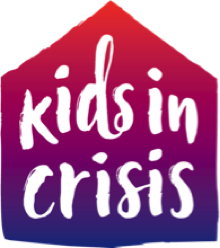
By Shari Shapiro and Tracey Blackman
Kids In Crisis
Remember your sister’s old diary, with the little silver lock and key, where maybe she kept her most private thoughts and feelings about summer vacations, trips to the mall, her classroom crushes and prom dates? Today that’s called journaling, and it is being encouraged among children of all ages for many different reasons, the most important of which is to support their very own mental well-being.
It’s estimated that 1 in 7 children today are living with at least one treatable mental health disorder. This could be anxiety, ADHD, depression. Many of these kids are not being diagnosed, let alone treated. Kids In Crisis works to help children like this, all day every day. One very simple yet incredibly effective method we’ve always relied on is journaling. Whether this is with our residents in our SafeHaven for Kids shelter, or through our TeenTalk and KidTalk programs in schools and in the community.
We know that for some kids, expressing themselves verbally is difficult and uncomfortable. Journaling can be a great outlet. This is because when we speak, especially during times of distress, we often use our emotional primitive brain, but when we journal we are more apt to access our cognitive reasoning brain. So journaling can be used to help kids keep track of and organize thoughts and feelings, and even help kids make connections between experiences and feelings. The process can also help them identify triggers or patterns throughout their day that might elicit certain moods.
Journaling has proven to be a tremendous tool for kids, and even adults, who have trouble falling asleep before bed. They use the journal as a way to record their racing thoughts, to-do lists, worries, etc. that they might experience before bed. This helps them to feel better ensuring they will not forget these thoughts, and they are then able to move on to a breathing exercise, progressive muscle relaxation, mindfulness activity, or another strategy for helping them relax and fall asleep.
For some, their journal might be their safe space, to express themselves without judgement. This can be such an important resource for kids struggling with mental illness or just having a tough time, as there is still too much stigma around sharing struggles.
Even if a child is not actively struggling, journaling can be a nice way for any student to either start the morning, or decompress after a long day. So no matter what your age, grab some paper and a pen and start journaling. You can just write what comes to you in your stream of consciousness, or choose a specific topic. Don’t worry about spelling, or self-editing, just let your thoughts flow.
Kids In Crisis distributes about 400 journals each year to the kids and families we serve. If you or someone you know is interested in donating journals or hosting a journal drive, please call us at 203-622-6556.

